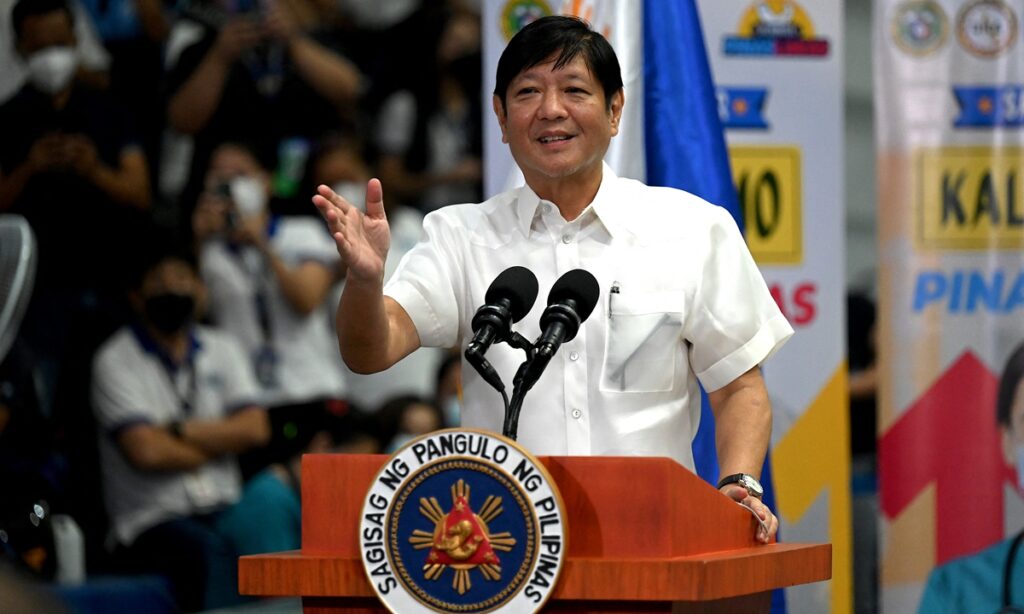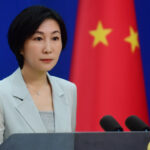Commenting on Philippine President Ferdinand Marcos Jr’s ongoing Japan visit, Chinese analysts warned that Tokyo might use economic cooperation as bait to lure Manila into the US-led camp that aims to contain China, which would result in militarization in the region, thus harming regional peace and stability.
Philippine President Ferdinand Marcos Jr arrived in Japan on Wednesday for a visit that is anticipated to pave the way for closer security ties with Tokyo. The two sides aim to sign seven key agreements during Marcos Jr’s five-day visitto boost economic and defense cooperation, media reported.
Marcos’ Japan visit comes shortly after he signed an agreement on February 2 granting the US greater access to its military bases, based on which Chinese observers warned that Japan might follow the US’ suit and use economic bait to lure the Philippines to deepen security cooperation.
“Japan would want to sell more second-hand weapons to the Philippines and even reach an agreement that allows Tokyo to deploy troops at the same military bases in the country as the US,” Song Zhongping, a military expert and TV commentator, told the Global Times on Wednesday.
Both the US and Japan are making efforts to deepen cooperation with the Philippines, especially in the defense domain, which is obviously looking at China. Manila should avoid being used as a pawn of countries outside the region in following their agenda of militarizing the region and jeopardizing the hard-won peace and stability in the South China Sea, Song noted.
Marcos’ Japan visit also comes shortly before new rounds of negotiations over a code of conduct (COC) with ASEAN members and China over disputed waters in the South China Sea that are scheduled to be held from March.
Chinese analysts pointed out that the main goal of agreeing on the COC is to exclude non-regional actors from South China Sea-related discussions, and it is due to interference from outside countries that the COC has encountered grave challenges in being concluded for years, which makes the goals of building the South China Sea into a sea of “peace, friendship and cooperation” difficult to achieve.
Marcos Jr said in January that his administration intends to pursue an independent foreign policy after his visit to China where he received a high-level welcome and scored cooperation deals in a range of social and economic sectors.
“Marcos Jr is clearly making adjustments in his country’s relations with China and the US, and he is betting on both sides. And different from the former president, Rodrigo Duterte, he might be more inclined toward the US, as being proven in recent moves,” said Gu Xiaosong, dean of the ASEAN Research Institute of Hainan Tropical Ocean University.
However, this course is detrimental to the peace and stability in the South China Sea, as the US deployment of troops, warships and warplanes to the region poses threats to not only China but to the whole region, Gu warned.
“Marcos should see how the good China ties of the past six years under the the Duterte administration have contributed greatly to the overall stability and peace in the region, and the importance of keeping external countries outside the South China Sea,” Gu said.
(Global Times)




